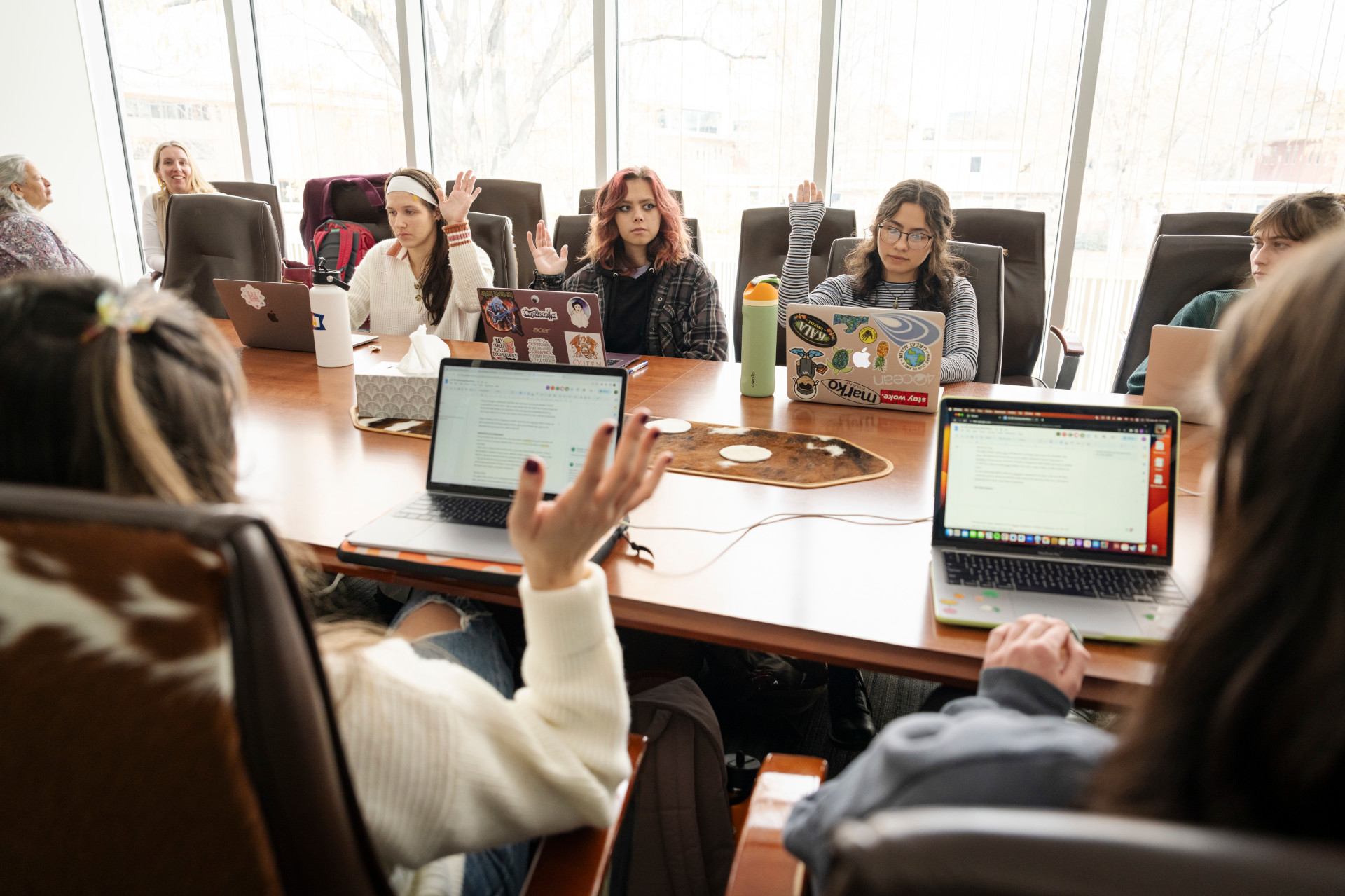
*The first portion of this article comes from an article written by Allison Sylte and published in SOURCE on Oct. 30, 2023
Here’s a question: What is a democracy?
Sure, a political science 101 textbook might offer one definition, but students in a special Colorado State University class have been given a space to create their own, culminating in a Constitutional Convention. From their convention work, the students produced a Manifesto for Re-Envisioning Democracy.
“There’s a myth that the U.S. is the only way to structure or ‘do’ democracy – it’s not, and we want to use this to shatter the norms about what this concept means,” said Courtenay Daum, a CSU professor of political science with expertise in the interaction between law and society including LGBTQ politics, intersectional and feminist legal theories.
She is co-teaching the course with Doreen Martinez, an associate professor in the Department of Ethnic Studies who is an expert in Indigenous knowledge systems. The two of them launched their Liberal Arts course to coincide with CSU’s Thematic Year of Democracy, and taught a section that includes students from a variety of different disciplines.
“It’s been exciting but hard – we’re trying to engage questions and issues that are very critical,” Martinez said. “We’re coming up with foundations and exploring concepts, yet if there were easy answers to today’s pressing challenges, it already would’ve been done.”
Original article: https://source.colostate.edu/what-is-democracy/
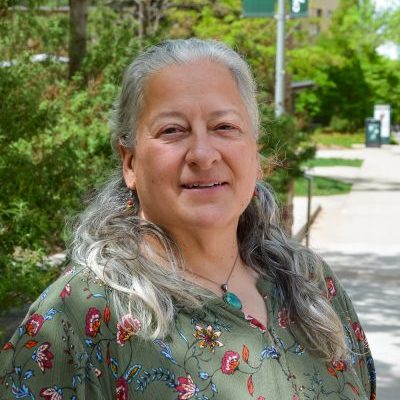
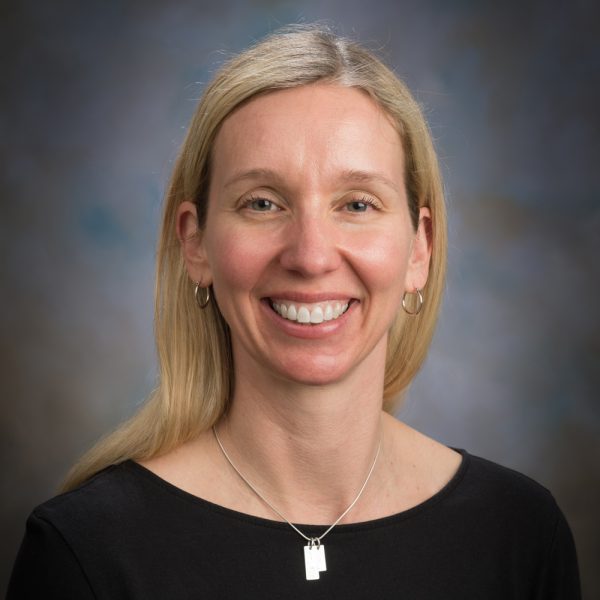
Reflections on Different Ways to Do Democracy
Two students in the class – Jamie Binder (Senior, Political Science) and Theo Reese (Senior, Political Science and Economics) – signed up for the course because of their previous experience with Dr. Daum and noted the course has been a completely new experience.
“It’s one of the more innovative classes I’ve taken,” says Binder. “I have learned a lot from Dr. Martinez about information processing and Indigenous principles. She has a very different way of thinking: an Indigenous way of thinking which emphasizes nature, community. This is compared to a colonial way of thinking which heavily emphasizes the individual. She taught me how to deconstruct my thinking and not be so narrow minded.”
For Reese, the approach to thinking was new, but not an unusual switch. “I am used to altering my frame of thinking depending on the class I’m in – I go from political science to logic to economics,” Reese says. “[This class is helping me] develop a new frame of thinking – develop a new mindset.”
“In class we have done a compare and contrast of the legal system we have now, which is litigious and argumentative, trying to prove each other wrong, very individual focused. With Indigenous societies, there is a focus on having a responsibility to the greater community rather than just looking out for yourself.”
“In class we have done a compare and contrast of the legal system we have now, which is litigious and argumentative, trying to prove each other wrong, very individual focused. With Indigenous societies, there is a focus on having a responsibility to the greater community rather than just looking out for yourself.” – Theo Reese
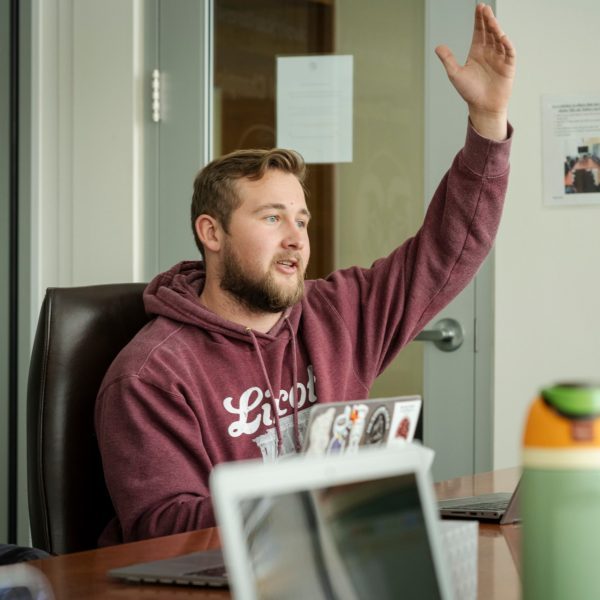
The class spent eight weeks reviewing writings and documents (both US legalese and Indigenous principles) – asking the professors questions and asking for explanations. “Now that we’re trying to apply what we’ve learned, we have points of contention during the convention,” says Reese.
The class discussed ‘equity’ and what that means or implies, and they added in the environment – the natural world – in discussions of rights and equity and responsibility.
“It’s hard to conceptualize because the way we’ve operationalized our rights in the U.S. is very individual focused: When we recount rights in the United States, it is generally ‘this is my right.’ In indigenous societies, rights are derived from the mindset of ‘what’s best for us’ or ‘what is best for all effected beings.’
“What I have learned and observed in this class about Indigenous principles is that identity is present and prosperous in each person, but you are part of something greater. It was really hard to capture at first because that’s not how society operates in the U.S.,” says Binder.
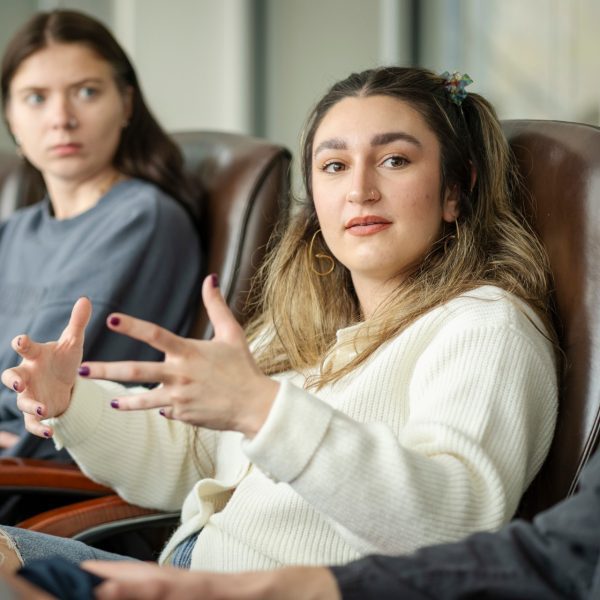
“It’s hard to conceptualize because the way we’ve operationalized our rights in the U.S. is very individual focused: When we recount rights in the United States, it is generally ‘this is my right.’ In indigenous societies, rights are derived from the mindset of ‘what’s best for us’ or ‘what is best for all effected beings." – Jamie Binder
As the students learned about these concepts and integrated them into their thinking and conversation, they turned their effort toward creating the constitutional convention. The students used the convention to discuss, make decisions, and come up with a final product.
“A constitutional convention is how we frame the governing document we’re going to live by. [In this class], it’s more of a roundtable about what values we hold rather than what specific laws we want to enact,” says Binder. “This comes from Indigenous information we learned and how they create communities. We’re taking on a more Indigenous style and framework in our process while still incorporating means of rights as we have seen them work in the United States.
“We’ve struggled with what we want the end goal to be. A document – bill of rights, constitution, manifesto? That last one seemed the most feasible. We will come up with 10-20 principles and elaborate on them rather than identify point blank rights or liberties.”
Students in the College of Liberal Arts, LB 393 Seminar in Arts, Humanities, Social Sciences class review, discuss, and take votes on many subjects. November 30, 2023
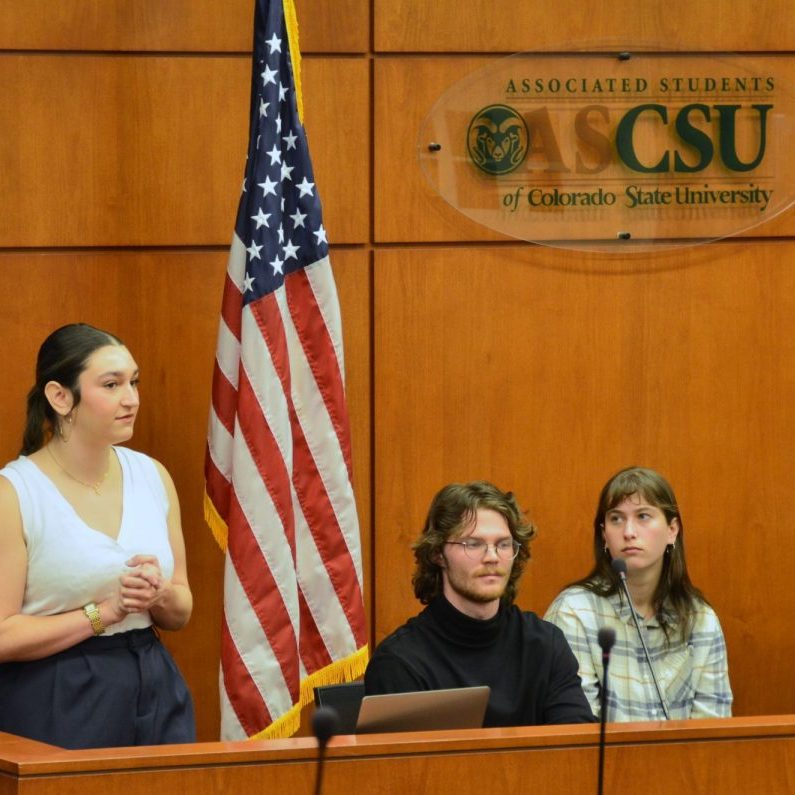
That active and collaborative process of defining their output is, in itself, a democratic practice because the students have to take into account a variety of perspectives and desires.
“I’ve learned a lot from my classmates, which doesn’t happen often. We all have different ways of thinking, and Dr. Martinez and Dr. Daum do a great job of facilitating that,” says Binder. “I have to come to class prepared and ready to engage, or I get lost. If I contribute nothing, I learn nothing.”
The end of the semester ended in the presentation of the manifesto – and a stronger sense of community, non-human rights (for animals and nature), and skills in thinking differently. All of which will serve these students personally and our democracy broadly now and in its future.
